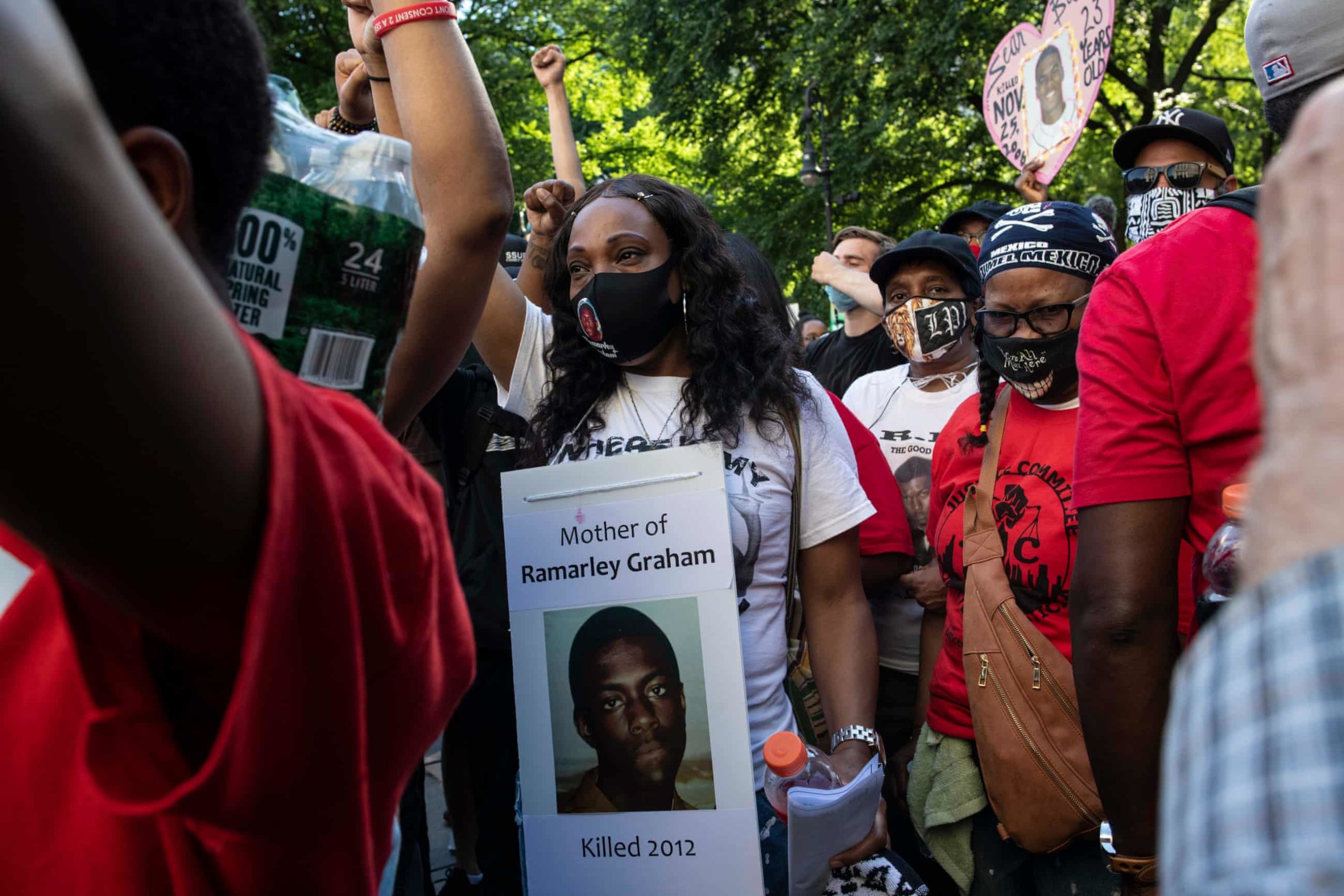In his final moments of life, George Floyd called for his mother as a white Minneapolis police officer knelt on his neck in the street.
Floyd’s death has sparked a now worldwide anti-racism movement, huge anti-police brutality protests across America, and a national conversation that is reckoning with the US history of racism.
But Floyd’s finals words have also rallied women who have grieved the death of their own children, the victims of police brutality, for years.
These mothers of Americans killed by police have watched as tens of thousands recently mourned the deaths of another three black children: Ahmaud Arbery, Breonna Taylor and Floyd.
But sometimes their own grief stretches for many years. Since her son Amadou Diallo’s death in a hail of 41 bullets from police in 1999, Kadiatou Diallo has watched black mothers grieve. So has Valerie Bell, since police shot her son Sean Bell 50 times hours before his wedding in 2006. As has Constance Malcolm, after police followed her 17-year-old son, Ramarley Graham, into his home in 2012, shooting him in front of his six-year-old brother after alleging they saw a gun on the unarmed teen.
The four women spoke to a reporter ahead of a march in New York last week, organized by the families who have lost loved ones to police killings, as part of the ongoing protest movement triggered by Floyd’s death.
“There’s no change,” Diallo said. Nearly at the same time, Malcolm added: “If anything, it got worse.”
A changed nation?
For years, these women marched through the US streets demanding justice within the system. All three mothers still hesitate to proclaim a changed nation as the country is gripped by weeks of protests. It’s too soon, they say.
All of the women agree that their call for changes to police protocols is one they have demanded for years. What’s different this time, Malcolm says, is a generation hungry for change.
“We have young people that want change. And they’re on the frontline [and] they’re willing to, basically, to me … they were willing to die, because if you see them up in these cops’ faces, they have guns. And we know what they do when they have guns,” she said.
“It’s been a long time that we’ve been struggling as a people,” Bell agreed.
As a group, these women have called for a special prosecutor to investigate all officer-involved deaths since 2015, the repeal of a New York state law protecting police from the release of their disciplinary records, and defunding the police.
“Our surviving children and grandchildren deserve to have a better future,” said Diallo. “The only change I noticed,” she added a little later, “is the camera. The videos, that is educating people, showing them the truth.”
The video documenting Floyd’s death has now been watched millions of times around the world, renewing calls for change, spurring protests and calls for changes to police departments nationally. Millions saw Garner’s death, too, along with his final words: “I can’t breathe.”
“Our surviving children and grandchildren deserve to have a better future,”
Kadiatou Diallo
The officer involved in Garner’s death was not indicted by a Staten Island grand jury. He was fired five years later.
But this week, New York state legislators passed a law criminalizing the chokehold. State senator Diane Sabino credited Garner’s mother for this change.
Our strength is to really push forward the change we need, because we’re not going to give upKadiatou Diallo
The movement to defund the police nationwide might have gained traction in recent days, but it is something most of the women have called for well before the conversation seeped into American homes. Bell spent the previous weekend calling her local officials well into midnight along with Malcolm.
“You have to keep on, and so many of them are out there who have it in their mind that they want to make the change, but they’re afraid to make that change,” Bell said. Some police forces have addressed those calls, taking moderate steps to reform policies.
The four women are a tight-knit group.
We are a team, Diallo said. One that won’t stop.
“When George Floyd called his mama, all of the mothers were summoned to push forward and make things happen. Our strength, our strength is to really push forward the change we need because we’re not going to give up. Like I said, nothing changed.”



